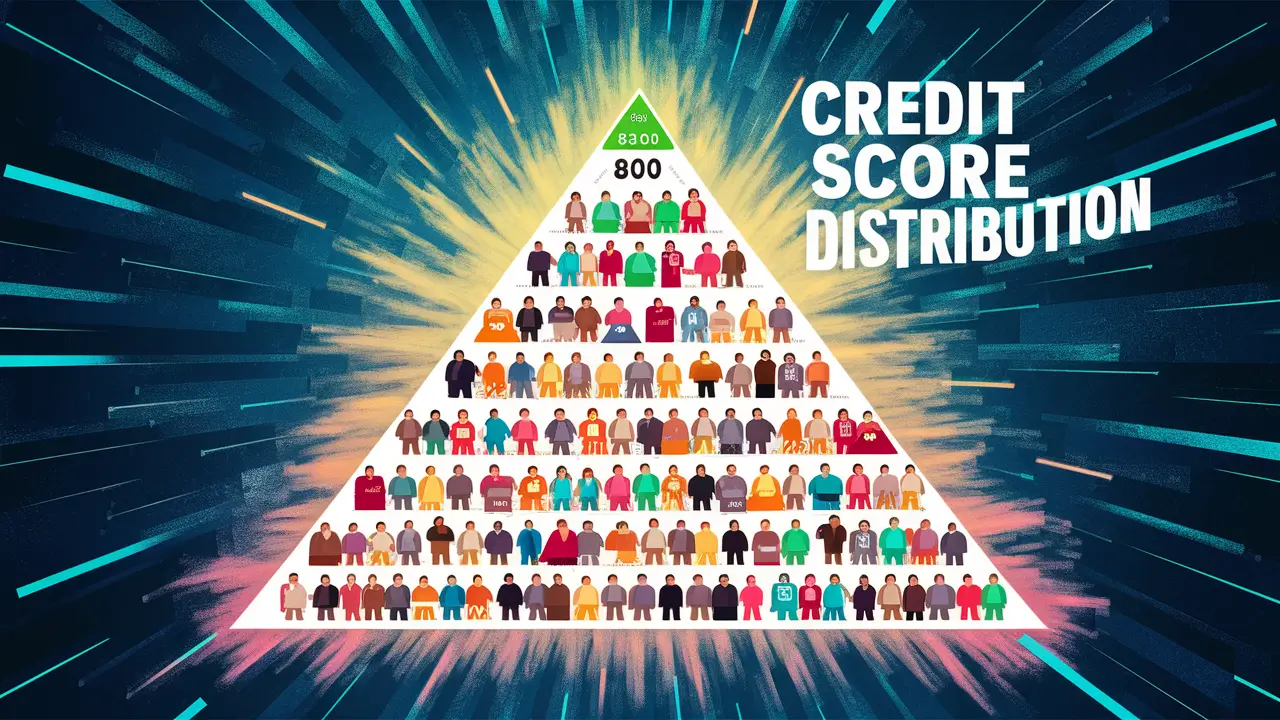-
Posted on: 26 Jul 2024

-
In the world of personal finance, achieving an 800 credit score is often seen as the pinnacle of creditworthiness. It’s a number that signifies financial discipline, responsibility, and a solid understanding of credit management. But just how many people actually attain this prestigious score? Let’s delve into the details to shed light on this elusive financial benchmark.
Understanding the 800 Credit Score
An 800 credit score is categorized as "Excellent" on most credit scoring models, including FICO and VantageScore. This high score reflects a history of timely payments, low credit utilization, and a diverse credit mix. It signifies that the individual is an extremely low-risk borrower, which can lead to better interest rates and favorable loan terms.
How Common Is an 800 Credit Score?
The percentage of people who achieve an 800 credit score is relatively small. According to recent data from FICO, less than 20% of Americans have a credit score that exceeds 800. This statistic highlights just how rare it is to achieve such a high score. Factors contributing to this rarity include the need for a long credit history, consistent responsible credit usage, and the maintenance of low credit utilization rates.
Factors Influencing a High Credit Score
Credit History Length: The longer your credit history, the better. A lengthy credit history demonstrates your experience with managing credit over time.
Payment History: Consistently paying your bills on time is crucial. Any missed or late payments can negatively impact your score.
Credit Utilization: Keeping your credit card balances low relative to your credit limits is essential. Ideally, you should aim to use less than 30% of your available credit.
Credit Mix: Having a diverse mix of credit accounts, such as credit cards, auto loans, and mortgages, can positively affect your score.
New Credit Inquiries: Avoiding excessive new credit inquiries can help maintain a high score. Each inquiry can slightly lower your score.
Benefits of an 800 Credit Score
Achieving an 800 credit score comes with several advantages:
-
Lower Interest Rates: Lenders view you as a low-risk borrower, which can result in lower interest rates on loans and credit cards.
-
Better Loan Terms: You’re more likely to qualify for favorable loan terms, including higher loan amounts and more flexible repayment options.
-
Easier Approval: With an 800 credit score, you’re more likely to be approved for new credit cards and loans.
-
Insurance Discounts: Some insurance companies offer lower premiums to individuals with excellent credit scores.
How to Improve Your Credit Score
If you’re not quite at the 800 mark, don’t worry! There are several strategies you can employ to improve your credit score:
Pay Bills on Time: Ensure that you never miss a payment. Set up automatic payments or reminders to stay on track.
Reduce Debt: Work on paying down outstanding debt and keep your credit card balances low.
Check Your Credit Report: Regularly review your credit reports for any inaccuracies and dispute any errors you find.
Increase Credit Limits: If you have a good credit history, consider asking for a credit limit increase to lower your credit utilization ratio.
Avoid New Credit Inquiries: Be selective about applying for new credit to avoid unnecessary inquiries.
Conclusion
Achieving an 800 credit score is a notable accomplishment that reflects a high level of financial management and responsibility. While less than 20% of Americans reach this score, the benefits of having an 800 credit score are substantial, from lower interest rates to easier credit approvals. By understanding the factors that contribute to such a high score and employing strategies to improve your credit, you can work towards achieving this financial milestone.
Call now for expert credit repair services: (888) 803-7889
Read More:
How much income do you need to qualify for a $250000 mortgage?
How much can I borrow with a 780-credit score?
How much is a $300000 mortgage payment for 30 years?
How much can I afford for a house if I make 80000 a year?
What credit score is needed to buy a house with no money down?
-




